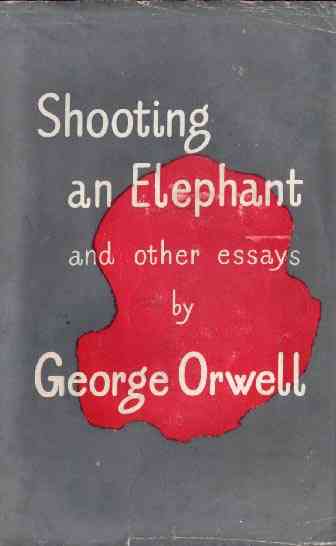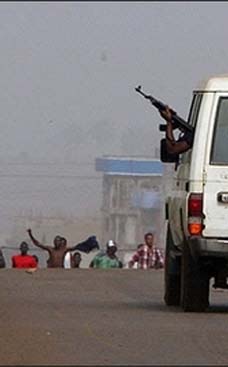
Who hates Americans the most? You might assume that it's people in countries that the United States has recently attacked or threatened to attack. Americans themselves are clear about who their principal enemies are. Asked by Gallup to name the "greatest enemy" of the United States today, 26 per cent of those polled named Iran, 21 per cent named Iraq and 18 per cent named North Korea. Incidentally, that represents quite a success for George W. Bush's concept of the "Axis of Evil". Six years ago, only 8 per cent named Iran and only 2 per cent North Korea. Are those feelings of antagonism reciprocated? Up to a point. According to a poll by Gallup's Centre for Muslim Studies, 52 per cent of Iranians have an unfavourable view of the United States. But that figure is down from 63 per cent in 2001. And it's significantly lower than the degree of antipathy towards the United States felt in Jordan, Pakistan and Saudi Arabia. Two thirds of Jordanians and Pakistanis have a negative view of the United States and a staggering 79 per cent of Saudis. Sentiment has also turned hostile in Lebanon, where 59 per cent of people now have an unfavourable opinion of the United States, compared with just 41 per cent a year ago. No fewer than 84 per cent of Lebanese Shiites say they have a very unfavourable view of Uncle Sam. These figures suggest a paradox in the Muslim world. It's not America's enemies who hate the United States most, it's people in countries that are supposed to be America's friends, if not allies.
Why do they hate us?
Hatred of America unites the world
By Niall Ferguson, Sunday Telegraph
Last Updated: 12:01am GMT 25/02/2007
Being hated is no fun. Few of us are like those pantomime villains who glory in the hisses and boos of an audience. And few people hate being hated more than Americans. I wish I had a dollar for every time I've been asked the plaintive question: "Why do they hate us?" and another for each of the different answers I've heard. It's because of our foreign policy. It's because of their extremism. It's because of our arrogance. It's because of their inferiority complex. Americans really hate not knowing why they're hated.
The best explanation is in fact the simplest. Being hated is what happens to dominant empires. It comes - sometimes literally - with the territory. George Orwell knew the feeling. As a young man he served as an assistant police superintendent in British-run Burma, an experience he memorably described in his essay "Shooting an Elephant". Called upon to kill a rogue pachyderm that had run amok, Orwell was suddenly aware "of the watchful yellow faces behind" him:
"The sole thought in my mind was that if anything went wrong those two thousand Burmans would see me pursued, caught, trampled on and reduced to a grinning corpse like that Indian up the hill. And if that happened it was quite probable that some of them would laugh."
advertisement
Eric Blair, as Orwell was known then, could scarcely have been better prepared for his role as a colonial official. Born in Bengal, the son of a colonial civil servant, he had been educated at Eton, where boys learn not to worry much about being hated. Yet even he found the resentment of the natives hard to bear: "In the end the sneering... faces of young men that met me everywhere, the insults hooted after me when I was at a safe distance, got badly on my nerves ... [It] was perplexing and upsetting."
That's a feeling American soldiers in Baghdad must know pretty well. How does that old Randy Newman song go? "No one likes us - I don't know why. / We may not be perfect, but heaven knows we try."
But who hates Americans the most? You might assume that it's people in countries that the United States has recently attacked or threatened to attack. Americans themselves are clear about who their principal enemies are. Asked by Gallup to name the "greatest enemy" of the United States today, 26 per cent of those polled named Iran, 21 per cent named Iraq and 18 per cent named North Korea. Incidentally, that represents quite a success for George W. Bush's concept of the "Axis of Evil". Six years ago, only 8 per cent named Iran and only 2 per cent North Korea.
Are those feelings of antagonism reciprocated? Up to a point. According to a poll by Gallup's Centre for Muslim Studies, 52 per cent of Iranians have an unfavourable view of the United States. But that figure is down from 63 per cent in 2001. And it's significantly lower than the degree of antipathy towards the United States felt in Jordan, Pakistan and Saudi Arabia. Two thirds of Jordanians and Pakistanis have a negative view of the United States and a staggering 79 per cent of Saudis. Sentiment has also turned hostile in Lebanon, where 59 per cent of people now have an unfavourable opinion of the United States, compared with just 41 per cent a year ago. No fewer than 84 per cent of Lebanese Shiites say they have a very unfavourable view of Uncle Sam.
These figures suggest a paradox in the Muslim world. It's not America's enemies who hate the United States most, it's people in countries that are supposed to be America's friends, if not allies.
The paradox doesn't end there. The Gallup poll (which surveyed 10,000 Muslims in 10 different countries) also revealed that the wealthier and better-educated Muslims are, the more likely they are to be politically radical. So if you ever believed that anti-Western sentiment was an expression of poverty and deprivation, think again. Even more perplexingly, Islamists are more supportive of democracy than Muslim moderates. Those who imagined that the Middle East could be stabilised with a mixture of economic and political reform could not have been more wrong. The richer these people get, the more they favour radical Islamism. And they see democracy as a way of putting the radicals into power.
The paradox of unfriendly allies is not confined to the Middle East. Last week was not a good week for Americanophiles in Europe. Tony Blair announced British troop withdrawals from southern Iraq, an unfortunate signal on the eve of the American "surge". Meanwhile, in Rome, his counterpart Romano Prodi had to resign because his coalition partners would not agree either to keep Italian troops in Afghanistan or to enlarge a US military base at Vicenza. Anti-Americanism is nothing new in European politics, to be sure, particularly on the Left. But there is something novel going on here, which extends to traditionally pro-American constituencies.
Back in 1999, 83 per cent of British people surveyed by the State Department Office of Research said that they had a favourable opinion of the United States. But by 2006, according to the Pew Global Attitudes Project, that proportion had fallen to 56 per cent. British respondents to the Pew surveys now give higher favourability ratings to Germany (75 per cent) and Japan (69 per cent) than to the United States - a remarkable transformation in attitudes, given the notorious British tendency to look back both nostalgically and unforgivingly to the Second World War. It's also very striking that Britons recently polled by Pew regard the US presence in Iraq as a bigger threat to world peace than Iran or North Korea (a view which is shared by respondents in France, Spain, Russia, India, China and throughout the Middle East).
Nor is Britain the only disillusioned ally. Perhaps not surprisingly, two thirds of Americans believe that their country's foreign policy considers the interests of others. But this view is shared by only 38 per cent of Germans and 19 per cent of Canadians. More than two thirds of Germans surveyed in 2004 believed that American leaders wilfully lied about Saddam Hussein's weapons of mass destruction prior to the previous year's invasion, while a remarkable 60 per cent expressed the view that America's true motive was "to control Middle Eastern oil". Nearly half (47 per cent) said it was "to dominate the world".
The truly poignant fact is that when Americans themselves are asked to rate foreign countries, they express the most favourable views of none other than Britain, Germany and Canada.
Back in the 1990s, Madeleine Albright pompously called the United States "the indispensable nation". Today it seems to have become the indefensible nation, even in the eyes of its supposed friends.
There are, admittedly, a few scraps of good news in the international polls. Very few Europeans, for example, would welcome China's becoming a serious military rival to the United States. There is overwhelming European opposition to Iran's acquiring nuclear weapons. And there is a surprising amount of hostility towards the Palestinian radicals of Hamas in both France and Germany. But look again at some of America's supposed allies. One in four Indians, two out of five Egyptians and one out of every two Pakistanis favour a nuclear-armed Iran. A third of Britons, half of all Indians and three quarters of Egyptians welcomed the success of Hamas in last year's Palestinian elections.
Orwell would have understood. Just as it was the educated beneficiaries of British rule in Asia who were the most strident anti-imperialists in Orwell's day, so the British Empire's most natural allies - France and the United States - were anything but Anglophile. For it turns out that power not only corrupts, as Lord Acton famously observed, it also tends to isolate.
It's not for nothing that they say it's lonely at the top.
















